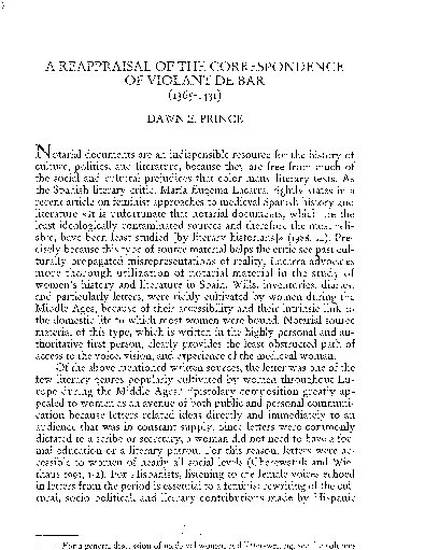
Notarial documents are an indispensible resource for the history of culture, politics, and literature, because they are free from much of the social and cultural prejudices that color many literary texts. As the Spanish literary critic, Maria Eugenia Lacarra, rightly states in a recent article on feminist approaches to medieval Spanish history and literature «It is unfortunate that notarial documents, which are the least ideologically contaminated sources and therefore the most reliable, have been least studied [by literary historians]» (r988, r4). Precisely because this type of source material helps the critic see past culturally propagated misrepresentations of reality, Lacarra advocates more thorough utilization of notarial material in the study of women's history and literature in Spain. Wills, inventories, diaries, and particularly letters, were richly cultivated by women during the Middle Ages, because of their accessibility and their intrinsic link tv the domestic life to which most women were bound. Notarial source material of this type, which is written in the highly personal and authoritative first person, clearly provides the least obstructed path of access to the voice, vision, and experience of the medieval woman.
Available at: http://works.bepress.com/dawn_bratsch-prince/7/

This article is from Catalan Review 8 (1994): 295. Posted with permission.